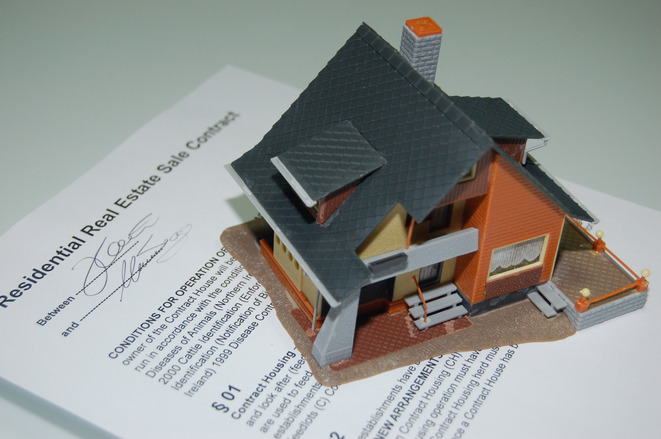By Jae Christian | Instagram: thejaechristian
Twitter: thejaechristian | Facebook: www.facebook.com/thejaechristian
2016 is the year to become a homeowner! It’s time to stop putting money in other people’s pockets and invest in your own future! Buying a home for the first time can seem very overwhelming and scary. In fact, the thought of not knowing anything about the home buying process can make you just want to rent forever. The truth is so many people, especially young professionals, can actually afford to purchase a home but continue to rent simply because they don’t know the buying steps or what questions to ask. Becoming a homeowner for the first time is a big deal and you need to make sure you have the right real estate agent on your side to help you along the way. I am very passionate about home ownership and educating people on how to become a home owner the right way!
That’s why I have made it my duty to educate people on the home buying process from A-Z. To help educate you on the home buying process, I will cover what you will need to consider before you buy, what you can expect from the home buying process itself.
Because becoming a homeowner is one of the biggest decisions you will ever make in your life, you need to make sure it’s a good move for you and that you can financially afford to purchase a home. Becoming a homeowner allows you to be in control. There are so many benefits that come along with being a homeowner and purchasing a home is GREAT investment.
- Finding the right real estate professional – The job of a real estate agent is to find you homes that fit your criteria, negotiate on your behalf to get you the best deal, do all the transnational paperwork required to close a deal, and to be there from start to finish to guide you and answer any questions you may have along the way. Real estate agents are experts on the real estate market and can educate you on the current conditions of the market. They are also there to prevent you from making any mistakes you might encounter during the process and can suggest solutions if any problems occur. Real estate agents are supposed to work for you, and put their clients first.
- Securing Financing – How much mortgage funding are you approved for? This is the most important step! You want to know how much you can afford before shopping for a home. You want to know actually how much a lender will actually be willing to give you to purchase your first home. Before talking to a lender, you want to know what your budget is and have an idea of what you want your mortgage to be every month realistically based on what you can really afford. A lender will review your financials and direct you to an appropriate price point based on factors like how much debt you have, your monthly income, and how long you’ve been at your current job. Some states offer down payment assistance programs for first time home buyers, so be sure to ask your lender if you qualify for any of those programs.
- Finding a home – Once you get pre-approved for a loan amount by a lender and find the right real estate agent, the fun part starts. Now you can start shopping for your dream home! You will need to discuss your criteria with your real estate agent and what you want in a home. Some things you may consider are location, amount of space, number of bedrooms and baths, garage size, when was the property built, and square footage. Most real estate agents will send their clients all the properties available that match their criteria on a routine basis. Some people use different online websites to look for properties, which is fine. However, these sites are not always updated, so the best way to find properties that are available is through your agent.
- Making an offer – Now that you have found a home you love, the next step is deciding how much to offer on the property. Your agent should perform a market analysis that will compare home values in the neighborhood to help you decide if a home is priced properly and ensure that you make an informed decision regarding the price. Your real estate agent will also advise you on anything else to add to your offer, like a home warranty or for the seller to pay any or all closing costs. Once you have agreed on all terms for the offer with your agent, he or she will submit the offer to the selling agent. At this point, the seller can either accept the offer and its terms or send back a counter offer. You then can accept the counter, or go back and forth until all parties agree to the same terms, or terminate and cancel the negotiations.
- Perform a Due Diligence – Once a deal is accepted by all parties, you enter into a due diligence period as a buyer. During this time, you will get a 10-14 day time frame to get all the necessary home inspections completed. You want to make sure you get a home inspection done because you want to know the quality and safety of the home before you buy. You want to make sure that there is no major structural damage, plumbing issues, or electrical issues plaguing the property. In some cases, if the home inspection reveals major problems, you can terminate the offer or ask that the seller reduces purchase price or repair the problems found. Before closing, you will also have to get the home appraised and have a title search completed.
- Closing – Now we are in the home stretch. If you and seller have reached a deal, the inspection didn’t reveal any major issues to terminate the deal, and the lender has approved your loan, you should be ready to close. Most closings take up to 30-45 days to close from the time the offer is accepted by both parties. During this time, you are under contract and you want to make sure you don’t make any large purchases and ensure that your financials stay constant. If anything changes in your financials in a drastic way, it can cause you to not be approved for the mortgage loan. Once everything is squared away and the lender says you are clear to close, you can go to what’s known as “the closing table”. The closing often takes place at an attorney’s office and you sign a large amount of paperwork, but it typically takes no longer than 2 hours before you are handed the keys to your new home.
Congratulations! You are now a homeowner!



